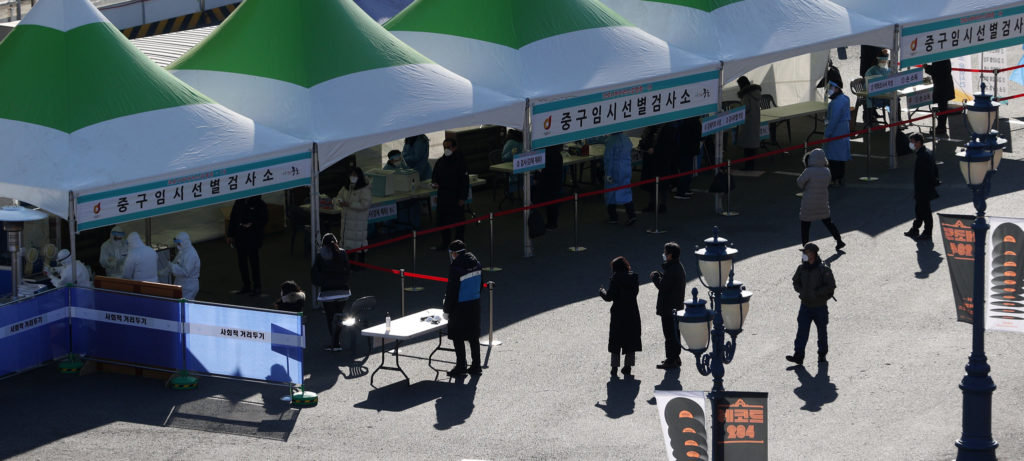The Peninsula
Public Health Policy Accommodate Foreign Relations

What Happened
- Public health mandate requiring vaccine passes to enter restaurants, grocery stores, and cafes incited backlash from foreign nationals whose overseas vaccinations were not recognized.
- Seoul amended its vaccine pass requirement for foreign nationals after a U.S.-led embassy protest.
- Prior to the changes, the U.S. military issued its own vaccine documents that were recognized by South Korean authorities.
Implications: South Korea sometimes adjusts public policies in accordance with its foreign policy priorities. The revision of policy on foreign vaccination records appears to be a direct response to complaints raised by the United States. Notably, the government yielded to demands from a U.S.-led ambassadorial coalition even though there had been weeks of individual action from the UK and Australian embassies. The U.S. military’s ability to issue proof-of-vaccination documents signed by the KDCA (Korea Disease Control and Prevention Agency) commissioner represents another example of the importance Seoul accords to the bilateral relationship. This, however, also underscores that Seoul’s privileged treatment of the United States focuses on the bilateral security relationship as American teachers and students in the country were unable to apply for quarantine exemption if they received their vaccines abroad.
Context: Conversely, Korea does not accord similar privileges to nationals from countries without the same political relationship. Under the current vaccine pass policy, there are 16 countries whose nationals cannot receive any quarantine exemptions. The majority of these countries are in the Global South. Moreover, entry from 11 African countries is restricted.
This briefing comes from Korea View, a weekly newsletter published by the Korea Economic Institute. Korea View aims to cover developments that reveal trends on the Korean Peninsula but receive little attention in the United States. If you would like to sign up, please find the online form here.
Korea View was edited by Yong Kwon with the help of Yubin Huh and Mai Anna Pressley. Picture from the flickr account of the Republic of Korea
